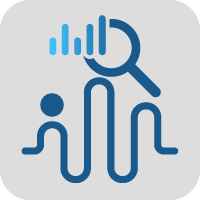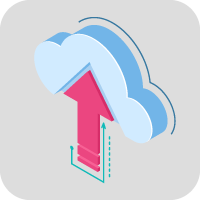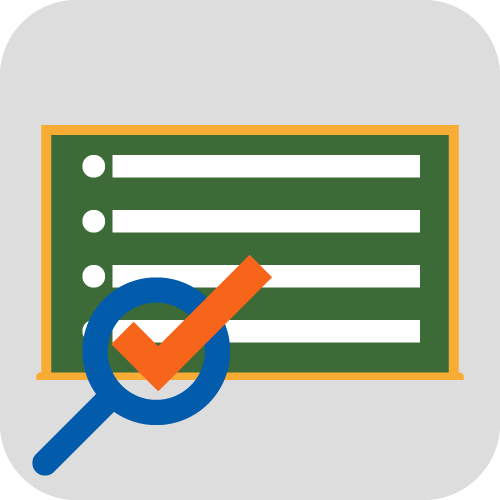Learning Analytics
Learning Analytics
OVERVIEW
Learning Analytics, as described by Siemens and Long (2011), is the process of collecting, analyzing, and interpreting data from educational environments to gain insights and enhance learning outcomes. It utilizes techniques from data mining and machine learning. Additionally, Learning Analytics encompasses the utilization of data and analysis techniques from disciplines like data science, educational research, and human-centered design to understand and improve learning and education. Its applications and benefits extend to learners, teachers, and educational institutions alike.
For Staff |
|||
 |
 |
 |
 |
 |
 |
||
| Surveys | Teaching and Learning Data Warehouse | Teaching & Learning Evaluation and Governance | |
For Students |
|||
 |
|||
| Avoiding Plagiarism | Mid-term CTLE | ||
PRINCIPLES
This approach to Learning Analytics reflects the following principles;
- The implementation of the University’s institutional surveys related to teaching and learning, and analysis of data generated therefrom should be aligned to the University’s strategic goals
- The University’s institutional surveys pertain to collective and concerted endeavours among various stakeholders. Therefore, coordination and collaboration are indispensable to effective implementation, meaningful analysis and interpretation of data, and formulation of pertinent recommendations to inform design, development and enhancement of curriculum, co-curriculum and extra-curriculum, as well as teaching and learning
- Individual institutional surveys should have their respective focus, so as to avoid overlapping and to gather specific sets of data, in order to derive specific recommendations at institutional level
- A comprehensive picture of student learning experiences and achievements can be ascertained through triangulating various forms of data and evidence, in order to derive overall recommendations at the institutional level
- A central repository should be in place to store, organize, retrieve and archive current and historical data from various sources, so as to facilitate data analysis, management and retention. The ultimate prototype of such repository should possess certain business intelligence functions, characterized with some customized retrieval, analytical, infographic and presentation functions
- The scholarship of teaching and learning can be enhanced via the collection, analysis and dissemination of findings as an essential aspect of the University’s Quality Assurance (QA) cycle
OBJECTIVES
The objectives of this approach to Learning Analytics are to:
- integrate various aspects related to design, administration, data analysis, storage and dissemination, and review of institutional surveys into a comprehensive framework
- collaborate with relevant units/ stakeholders together to develop, monitor and enhance the university’s institutional surveys on continuing basis
- advance the utilization of data and evidence generated therefrom to inform change and development in curriculum and teaching and learning
- enhance the development of the scholarship of teaching and learning
General Enquiries
 |
Phone: (852) 2616-7117 |
 |
E-mail: [email protected] |
 |
2/F, B Y Lam Building, |
 |
Learning Analytics
OVERVIEW
Learning Analytics, as described by Siemens and Long (2011), is the process of collecting, analyzing, and interpreting data from educational environments to gain insights and enhance learning outcomes. It utilizes techniques from data mining and machine learning. Additionally, Learning Analytics encompasses the utilization of data and analysis techniques from disciplines like data science, educational research, and human-centered design to understand and improve learning and education. Its applications and benefits extend to learners, teachers, and educational institutions alike.
For Staff | |||
 |  |  |  |
 |  | ||
| Surveys | Teaching and Learning Data Warehouse | Teaching & Learning Evaluation and Governance | |
For Students | |||
 | |||
| Avoiding Plagiarism | Mid-term CTLE | ||
PRINCIPLES
This approach to Learning Analytics reflects the following principles;
- The implementation of the University’s institutional surveys related to teaching and learning, and analysis of data generated therefrom should be aligned to the University’s strategic goals
- The University’s institutional surveys pertain to collective and concerted endeavours among various stakeholders. Therefore, coordination and collaboration are indispensable to effective implementation, meaningful analysis and interpretation of data, and formulation of pertinent recommendations to inform design, development and enhancement of curriculum, co-curriculum and extra-curriculum, as well as teaching and learning
- Individual institutional surveys should have their respective focus, so as to avoid overlapping and to gather specific sets of data, in order to derive specific recommendations at institutional level
- A comprehensive picture of student learning experiences and achievements can be ascertained through triangulating various forms of data and evidence, in order to derive overall recommendations at the institutional level
- A central repository should be in place to store, organize, retrieve and archive current and historical data from various sources, so as to facilitate data analysis, management and retention. The ultimate prototype of such repository should possess certain business intelligence functions, characterized with some customized retrieval, analytical, infographic and presentation functions
- The scholarship of teaching and learning can be enhanced via the collection, analysis and dissemination of findings as an essential aspect of the University’s Quality Assurance (QA) cycle
OBJECTIVES
The objectives of this approach to Learning Analytics are to:
- integrate various aspects related to design, administration, data analysis, storage and dissemination, and review of institutional surveys into a comprehensive framework
- collaborate with relevant units/ stakeholders together to develop, monitor and enhance the university’s institutional surveys on continuing basis
- advance the utilization of data and evidence generated therefrom to inform change and development in curriculum and teaching and learning
- enhance the development of the scholarship of teaching and learning
General Enquiries
 | Phone: (852) 2616-7117 |
| E-mail: [email protected] | |
 | 2/F, B Y Lam Building, Lingnan University, Tuen Mun, The New Territories, Hong Kong. |
 |


